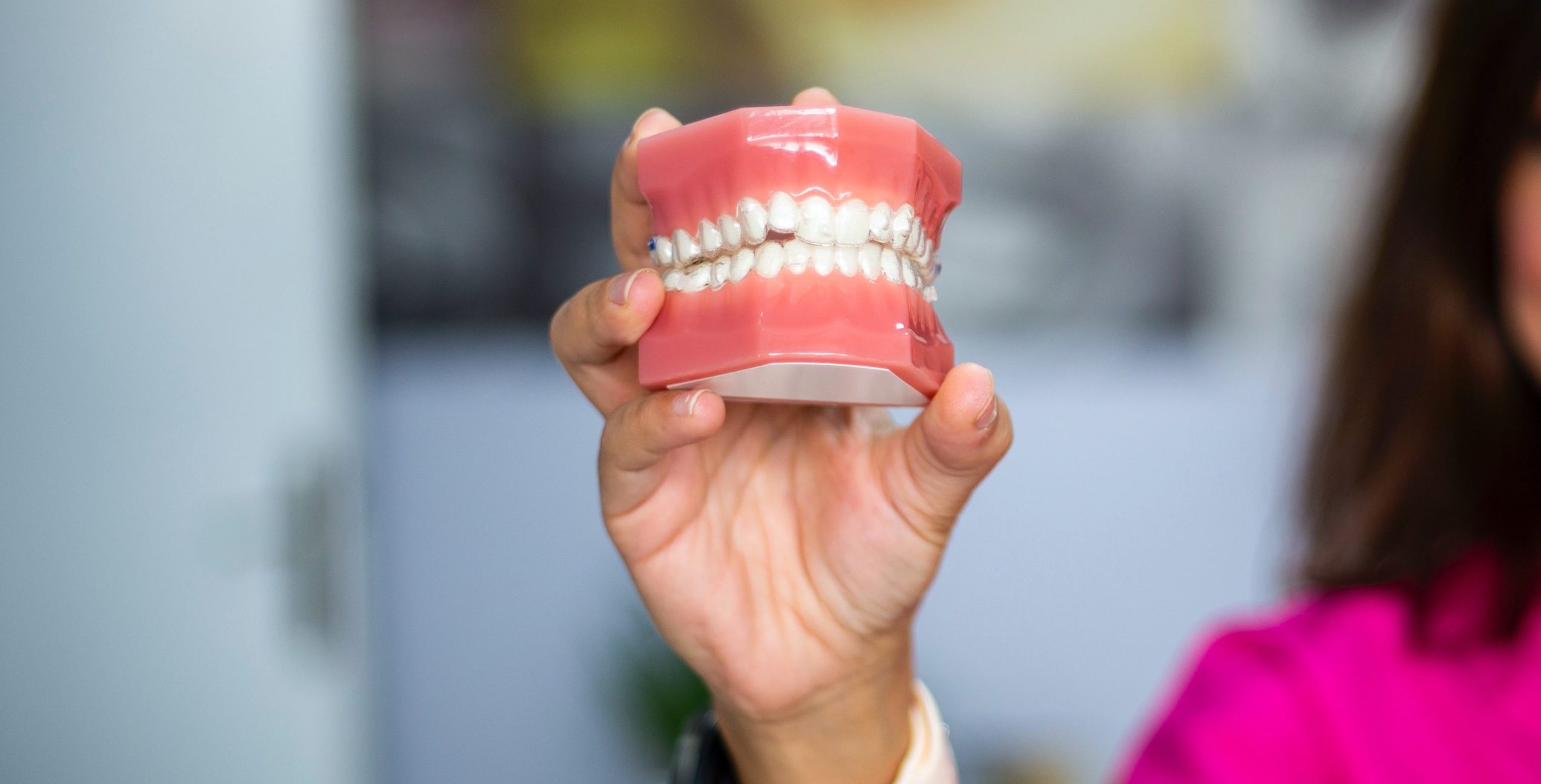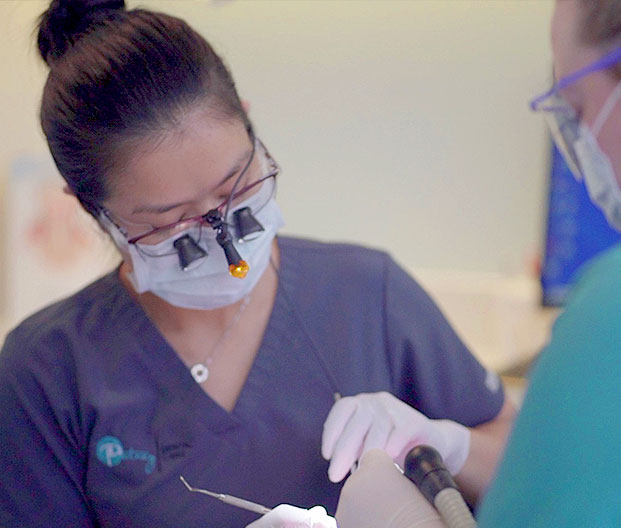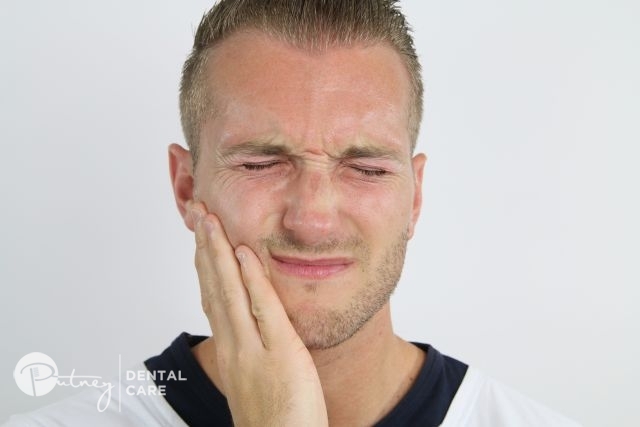
Crowded Teeth
If you think that your teeth are crowded, you’re not alone! Studies show that dental crowding is extremely common in adults and children, affecting 30% to 60% of people globally.
Aside from cosmetic issues, crowded teeth also hold a range of oral health complications that require the condition to be managed and treated by dental specialists. If left untreated, you can put yourself at risk for a range of dental problems.

What is Overcrowding Teeth?
Overcrowding teeth, also known as crowded teeth or dental crowding, is a type of malocclusion (a dental term used to describe
misaligned teeth or jaws).
In a correctly aligned set of teeth, your jaw should allow enough room for your teeth to grow without crowding or gaps. Dental crowding occurs when your jaw isn’t large enough for your teeth, forcing them to press together and grow crooked or overlapped.
Baby Teeth and Child Teeth Overcrowding
If your child appears to have their teeth crowding together, that’s okay! Pediatric dentists consider this an entirely normal part of their dental development.
Most commonly, dental overcrowding in children is caused by differing growth rates between the jaw bone and their baby teeth. As your child grows older, their teeth should develop to correctly align with the jaw and better fit inside the mouth.
Dental crowding is most problematic when the permanent teeth arrive, as it can create a range of dental and oral problems that may require orthodontic treatment.
Types of Overcrowding
There are several types of overcrowding that dentists use when diagnosing their patients. The classification depends on a range of factors such as the severity, location and prevalence of the crowding.
These types include:
- Mild crowding (single tooth crowding): occurs when one tooth in either the upper or lower jaw is slightly misaligned or rotated.
- Moderate crowding: occurs when two to three teeth overlap in the upper or lower jaw.
- Severe crowding: occurs when most of the upper or lower jaw teeth overlap, causing abnormal bite patterns.
- Bottom teeth crowding: occurs when only the lower teeth are overlapping.
- Front teeth crowding: occurs when the front teeth on the upper or lower jaw are noticeably overlapping.
Causes of Crowded Teeth

Several factors can cause crowded teeth. However, Orthodontics Australia notes that the shape and size of our jaw are closely connected to our genes, therefore playing a central role in the likelihood of dental crowding.
Other common causes of crowded teeth are:
- Losing baby teeth too early or late
- Extra adult teeth (Hyperdontia)
- Larger teeth
- Abnormal tooth growth
- Incorrectly erupted teeth
- Poorly-fitted dental crowns
- Cleft lip or palate
- Tumour
- Dental trauma caused by forceful impact to the mouth
- Using a dummy past the age of 3 (when baby teeth fully erupt)
- Excessive thumb-sucking or bottle-feeding during infancy
- Orofacial myofunctional disorders (abnormal jaw, lip tongue position when at rest or in the action of swallowing or speaking)
Symptoms of Crowded Teeth
There are various signs and symptoms to help identify if you or your child has dental crowding.
Such symptoms include:
- Crooked teeth set
- Overlapping teeth
- Twisting or rotating teeth
- Pain when chewing
- Problems with speech
- Regular tongue biting
- Crossbite (when bottom teeth stick out top set)
- Excessive overjet (a horizontal gap between top and bottom front teeth)
- Difficulty brushing and flossing
- Bleeding gums when flossing
Crowded Teeth Treatment
If you’re worried about your crowded teeth, there are a range of corrective dental procedures available to help realign your teeth. Furthermore, treating overcrowded teeth is an important preventative measure to avoid further dental complications such as tooth decay or gum disease.
For the best treatment, we recommend seeing our qualified dental team for an initial consultation. An initial consultation with Putney Dental will help provide you with the best personalised dental treatment options based on:
- The cause or severity of your teeth crowding
- Your age
- Your budget
- Your preferred procedure
Braces
Dental braces are a standard treatment to fix crowded teeth and realign the jaw. Typically, the treatment time for braces can be 18 months to 3 years and requires you to return to our orthodontic team every four to eight weeks for a check-up.
There are several types of braces that each come with different costs to suit your budget needs.
These braces types (with an approximate cost) are:
- Traditional metal braces: $6,000-$9,000
- Ceramic braces: $6,500 – $9,500
- Lingual braces: $6,500 – $9,500
Veneers
Veneers are a thin porcelain shell that fits over your teeth and is used to treat moderate cases of teeth crowding in adults. The tooth-coloured materials are bonded to your teeth to help mask and improve the aesthetics of your dental crowding.
While veneers do require fewer dental check-ups than braces, they can be significantly more expensive than traditional braces. Dentists usually charge each porcelain veneer per tooth, meaning that you could face a costly bill if you have several crowded teeth.
Retainers
Retainers are dental devices that apply slight pressure on your teeth, forcing them to move into a correct position. Unlike metal braces, retainers are only helpful for mild cases of dental crowding and are incapable of straightening your teeth completely.
Typically, a dentist will fit a retainer for you following braces treatment to ensure that your teeth do not start to twist or rotate.
The cost of your retainer will depend on the type, whether they are permanent or temporary.
- Temporary retainers can be removed at any time and are normally worn at night, and they usually cost anywhere from $100 to $400.
- Permanent retainers are thin metal lines that are fixed to the interior of your teeth, and they can cost anywhere from $150 to $500.
Invisalign
Invisalign is a removable clear aligner that helps gradually straighten teeth and correct dental overcrowding through incremental increases in pressure. Invisalign treatment requires a dentist to take an initial mould of your jaw to create your first aligner. Following this, you will need to return to your dentist 1 to 2 times a month for a new aligner, which will gradually increase pressure on your teeth to re-correct themselves.
Invisalign is different from retainers as you have to wear the aligner for 20 hours per day, only removing it when eating. Invisalign treatment is perfect if you want to discreetly correct your teeth crowding, as the transparent material of the aligner is far less noticeable than metal braces.
The overall cost and time of Invisalign depend on the severity of your teeth crowding. However, you can expect a 12 to 18 month treatment period with an average starting price of around $1800.
Tooth Extraction
In severe instances where the abnormal growth of extra teeth causes your dental crowding, a dentist may recommend seeing an oral surgeon for a tooth extraction.
Typically the extracted teeth are the ones that have erupted outside your dental arches. Following the extraction, you will need to realign your teeth with other treatment options to alleviate crowding.
The extraction procedure can be completed with either pain-numbing or sedative medications. The time of the procedure will depend on the number of teeth that need to be extracted.
Dentofacial Orthopaedics
Severe cases of dental crowding will require dentofacial orthopaedics. This traditional orthodontic treatment guides the growth of your facial bone to better align with your teeth. To achieve this, you will need to wear orthopaedic devices such as headgear or palatal expanders.
The time and cost of this procedure depend highly on the equipment your dentists may use and the severity of your teeth crowding.
Home Treatments
There are no safe home remedies or treatments for straightening teeth or correcting your dental crowding. Attempts for self-correction of your teeth can have severe consequences for your teeth and health, including permanent damage. DIY home treatment kits also can be misused without qualified supervision and cause further damage to your crowded teeth.
The best way to fix crowded teeth is with a team of dental specialists to provide you with personalised treatment. If you don’t want metal braces, there are plenty of other treatment options available that can correct dental overcrowding discreetly.
Complications of Untreated Overcrowding Teeth
Aside from aesthetic abnormalities, leaving your crowded teeth untreated can have severe complications for your oral health.
Straight teeth are easier to clean by brushing and flossing due to their correct alignment. Meanwhile, overcrowded teeth that overlap are more challenging to clean, leading to poor oral hygiene and increasing the risk of tooth decay, cavities, gum disease and speech difficulties.

Cavities
Cavities are damaged teeth that typically are characterised by tiny holes on the tooth’s surface. A cavity can cause toothache, infection and, in extreme cases, tooth loss.
Correct flossing and brushing with crowded teeth are extremely difficult due to the misalignment of the teeth. As a result, this can cause a buildup of both plaque and bacteria in your mouth, leading to tooth decay and cavities.
Gum Disease
Due to poor oral hygiene from dental crowding, the accumulation of bacteria in the mouth can severely impact the gums, leading to gingivitis and eventually gum disease. Gum disease is noticeable through bad breath, red, swollen and bleeding gums, loose teeth or gums that pull away from the teeth.
While treatable with a professional cleaning service and good oral hygiene habits, gum disease is difficult to manage with crowded teeth.
Speech Difficulties
Overcrowded teeth can also cause speech difficulties due to the teeth protruding outwards.
As a result, your tongue experiences difficulty moving within the mouth. You may find it challenging to pronounce words with s or sh sounds.
If you think you may have crowded teeth, book an appointment with our team of dental specialists that can provide you with the best advice and orthodontic care.
FAQs
Are Crowded Teeth Common?
Yes, crowded teeth are common in both kids and adults, affecting 30% to 60% of people globally.
Can You Fix Overcrowded Teeth?
There are several options to fix your overcrowded teeth, including braces, veneers, retainers, Invisalign (clear aligners) or tooth extraction. The choice of treatment method will depend on the severity of your overcrowded teeth, your age and your budget.
How Long Does it Take to Fix Overcrowding Teeth?
The length of time to correct overcrowding teeth depends on the type of treatment process. However, the average treatment duration can start at around 18 to 24 months.
How Much Does it Cost to Correct Crowded Teeth?
The cost of correcting crowded teeth will depend on the severity of your condition and the treatment you select. Treatments can start anywhere around $1,700 and can reach up to $9,000. You should see your dentist for an initial consultation and cost assessment for a better idea of the price.
Can Crowded Teeth be Fixed Without Braces?
Yes, there are other treatment options aside from traditional braces. While braces cost less, there are more discrete options available such as Invisalign treatment or veneers.
Is Crowding Bad for Your Teeth?
Yes, dental overcrowding can lead to a range of complications for your oral health. This includes tooth decay such as cavities and gum disease.
Does Wisdom Teeth Removal Relieve Crowding?
Despite popular opinion, wisdom teeth do not affect teeth crowding. Therefore, removing your wisdom teeth would have no effect in relieving your crowding.
Cosmetic Dentist Near Me
Address
A. Suite 5, 227 Morrison Rd, Putney, NSW 2112
(Next Door To Royal Rehab)
E. smile@putneydentalcare.com.au
Reserved Parking Available At Rear.
Opening Hours
Monday – 8:30 am – 5:30 pm
Tuesday – 8:30 am – 5:30 pm
Wednesday – 8:30 am – 5:30 pm
Thursday – 8:30 am – 5:30 pm
Friday – 8:30 am – 5:30 pm
Saturday – 8:00 am – 1:00 pm
Emergency Appointments Available
Call us today on (02) 9808 2588 or book an appointment online.
Book Online